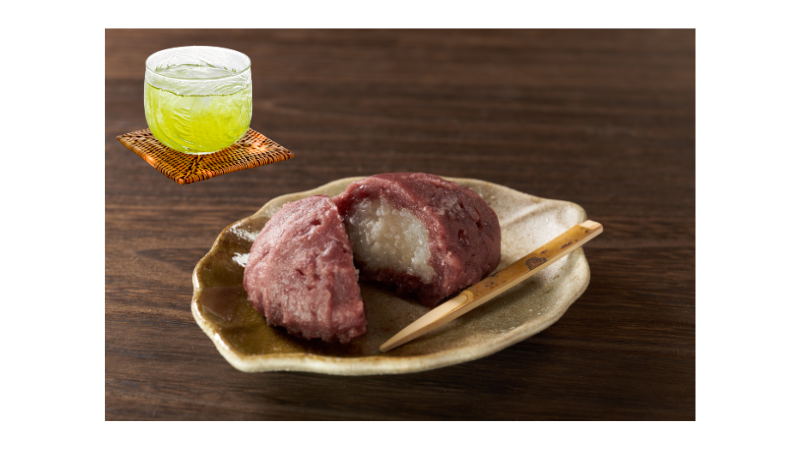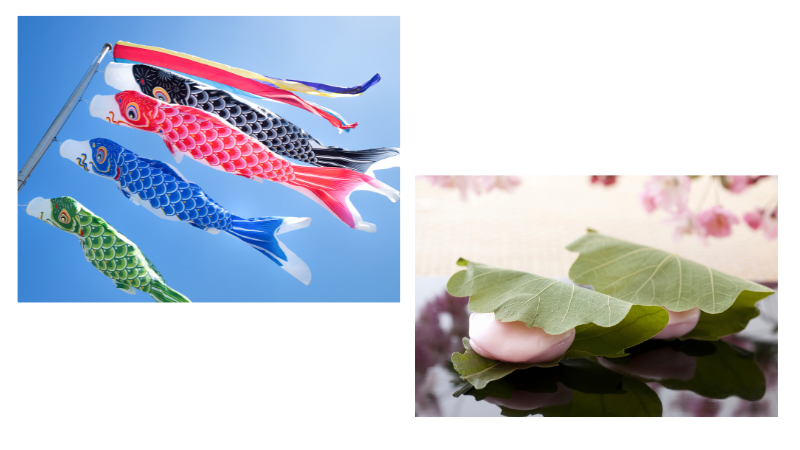日本には、季節、歴史、文化によってできた祝日があります。法律で決められた祝日は、1年間に16日です。その年のカレンダーによって、増える場合があります。この記事を書いている2025年は、19日あります。
日本に住んでいる人、日本に旅行に来たい人のために、簡単に紹介します。
In Japan, there are national holidays created by the seasons, history, and culture.There are 16 legally designated holidays in a year.The number may increase depending on the calendar of the year.As of this writing in 2025, there are 19 days.
For those who live in Japan or want to travel to Japan, here is a brief introduction.
- 日本の祝日は16日/Japanese national holiday is on 16th
- 1月1日:元日(がんじつ)|New Year’s Day
- 1月第2月曜日:成人の日(せいじんのひ)|2nd Monday of January – Coming of Age Day
- 2月11日:建国記念の日(けんこくきねんのひ)|National Foundation Day
- 2月23日:天皇誕生日(てんのうたんじょうび)|Emperor’s Birthday
- 3月20日ごろ(年で変わる):春分の日(しゅんぶんのひ|Vernal Equinox Day
- 4月29日:昭和の日(しょうわのひ)|Showa Day
- 5月3日:憲法記念日(けんぽうきねんび)|Constitution Memorial Day
- 5月4日:みどりの日(みどりのひ)| Greenery Day
- 5月5日:こどもの日(こどものひ)| Children’s Day
- 7月第3月曜日:海の日(うみのひ)|3rd Monday of July – Marine Day
- 8月11日:山の日(やまのひ)|Mountain Day
- 9月第3月曜日:敬老の日(けいろうのひ)| 3rd Monday of September- Respect for the Aged Day
- 9月23日ごろ(年で変わる):秋分の日(しゅうぶんのひ)|Autumnal Equinox Day
- 10月第2月曜日:スポーツの日(スポーツのひ)|Second Monday in October – Sports Day
- 11月3日:文化の日(ぶんかのひ)|Culture Day
- 11月23日:勤労感謝の日(きんろうかんしゃのひ)|Labor Thanksgiving Day
- ちゅういすること
日本の祝日は16日/Japanese national holiday is on 16th
1月1日:元日(がんじつ)|New Year’s Day
いみ:新しい年の始まり
Meaning: The beginning of the new year
すること:初詣、おせち料理、お年玉、お雑煮
What people do: Visit shrines (Hatsumode), eat osechi (New Year food), give otoshidama (money gift for kids),soup with rice cake(mochi) and vegetables (Ozoni)
昔から日本では、料理を作るのは女性の仕事になっていました。伝統的なお正月料理は、お正月に女性を休ませる意味もあります。日持ちがする料理を作っておいて、しばらく料理をしなくてもいいように考えたのです。
以前お正月は多くの店が休みでしたが、最近はお正月も店が開いています。それに、コンビニでも毎日買い物ができます。ですから、今は昔に比べてたくさんの料理を作らなくなりました。
味や、何を入れるかは、その家や地域によって違います。
Traditionally in Japan, cooking has been a woman’s job.Traditional New Year’s dishes are meant to give women a break during the New Year.The idea was to make dishes that would last for a long time so that they would not have to cook for a while.
Many stores used to be closed on New Year’s Day, but these days stores are open on New Year’s Day.Besides, you can shop at convenience stores every day.Therefore, we don’t cook as many dishes nowadays as we used to.
The flavors and what to put in them vary from house to house and region to region.
1月第2月曜日:成人の日(せいじんのひ)|2nd Monday of January – Coming of Age Day
いみ:成人になった人をお祝いする日。日本では2022年から法律が変わり、18歳で成人になります。
Meaning:A day to celebrate those who have reached adulthood. In Japan, the law will change in 2022, and the age of adulthood will be 18 years old.
すること:成人式に出る、着物やスーツを着る
What people do:Join a coming-of-age ceremony. Wear kimono or suits.
2月11日:建国記念の日(けんこくきねんのひ)|National Foundation Day
いみ:日本の建国を祝う日
Meaning: Celebrating the founding of Japan
すること:国旗を飾る
What people do: Display national flag
わたしが小さいころは、たまに、門のところに国旗を飾る家がありましたが、最近は見ません。
When I was a child, there were houses that sometimes displayed the national flag at the gate, but I have not seen it recently.
2月23日:天皇誕生日(てんのうたんじょうび)|Emperor’s Birthday
いみ:天皇の誕生日をお祝いする日。
Meaning:A day to celebrate the Emperor’s birthday.
すること :一般参賀がある(東京の皇居)、ニュースや番組でみる
What people do: People visit the Imperial Palace (Tokyo), watch news and programs
3月20日ごろ(年で変わる):春分の日(しゅんぶんのひ|Vernal Equinox Day
いみ:昼と夜の長さが同じになる日
Meaning: Day when day and night are about the same length
すること:お墓参り
What people do: visit family graves
ぼたもち (Botamochi)がスーパーにたくさん並びます。あんこを使った甘い和菓子です。同じ和菓子ですが、春と秋で名前が違います。春に食べると「ぼたもち」、秋には「おはぎ」です。春は春の花の「牡丹/ぼたん」、秋は秋の花の「萩/はぎ」から名前を考えました。
中には、もち米が入っていておいしいですよ。
Botamochi is now available in many supermarkets.Botamochi is a sweet Japanese confectionery made with red bean paste.
Although they are the same wagashi, they have different names in spring and fall.When eaten in spring, it is called “botamochi” and in fall, it is called “ohagi.We came up with the name from the spring flower “botan” in spring and the autumn flower “hagi” in autumn.
It is delicious with glutinous rice inside.

4月29日:昭和の日(しょうわのひ)|Showa Day
いみ:「昭和」と呼ばれる時代がありました。1926〜1989年です。
Meaning: There was a period known as the “Showa era,” 1926-1989.
すること:この日あたりからゴールデンウィーク(GW)が始まります。
What people do: Golden Week begins (GW)around this date.
5月3日:憲法記念日(けんぽうきねんび)|Constitution Memorial Day
いみ:日本の憲法を記念する日
Meaning: Celebrating the Japanese Constitution
すること:憲法のイベント・展示。実際には、連休中なのであまり意味は気にしません。
What people do: Visit museums or events about the Constitution. In fact, we don’t really care what it means since it is during the holidays.
5月4日:みどりの日(みどりのひ)| Greenery Day
いみ:自然や緑に感謝する日
Meaning: Showing thanks to nature
すること:植物園や公園に行く、自然を楽しむ。
暖かくなり、天気もよく、ガーデニングや、畑での野菜づくりに適した時期です。ホームセンターの花売り場はとても混みます。わたしも、毎年、庭にトマトを植えています。
What people do: Visit parks or gardens, enjoy outdoor activities.
It’s warming up, the weather is nice, and it’s a good time for gardening and growing vegetables in the field.The flower departments at home improvement stores are very crowded.I also plant tomatoes in my garden every year.
5月5日:こどもの日(こどものひ)| Children’s Day
いみ:子どもの成長を祝う日
Meaning: Celebrating the growth and happiness of children
すること:こいのぼりを飾る、柏もちを食べる
What people do: Display koinobori (carp streamers), eat kashiwa-mochi (sweet rice cakes wrapped in oak leaves)
「柏もち」という名前の和菓子を食べます。あんこが入った餅を、柏の葉で包んだものです。息子が小さかったときは、プレゼントをあげていました。
We eat a Japanese confectionery named “Kashiwa-mochi.It is a rice cake filled with red bean paste and wrapped in an oak leaf.When my son was small, I used to give him gifts.

7月第3月曜日:海の日(うみのひ)|3rd Monday of July – Marine Day
いみ:海の恵みに感謝する日
Meaning: Thanking the ocean and thinking about Japan as an island nation
すること:海へ行く、マリンスポーツを楽しむ
What people do: Go to the beach, enjoy water sports
この日あたりから、学校の夏休みが始まります。夏休みは、だいたい、7月21日〜8月31日までです。学校や地域で少し違います。
Around this date, the school summer vacation begins.Summer vacation is usually from July 21 to August 31.It differs slightly from school to school and region to region.
8月11日:山の日(やまのひ)|Mountain Day
いみ:山や自然に親しむ日
Meaning: Appreciate mountains and nature
すること:登山、ハイキング、キャンプ
What people do: Go hiking, camping, enjoy nature
2016年から始まった、1番新しい祝日です。
This is the newest holiday, which began in 2016.
9月第3月曜日:敬老の日(けいろうのひ)| 3rd Monday of September- Respect for the Aged Day
いみ:高齢者を敬い、長寿を祝う日
Meaning: Respect and celebrate the elderly
すること:祖父母にプレゼントや感謝の言葉を送る
What people do: Give gifts or messages to grandparents, spend time together
9月23日ごろ(年で変わる):秋分の日(しゅうぶんのひ)|Autumnal Equinox Day
いみ:昼と夜の長さが同じになる日
Meaning: Day and night are the same length again
すること:お墓参り
What people do: Visit family graves
おはぎ (Ohagi)を食べます。3月20日の春分の日と同じ和菓子です。春と名前が違います。
We eat Ohagi (Ohagi), the same Japanese confectionery as on March 20, the first day of spring.The name is different from that of spring.

10月第2月曜日:スポーツの日(スポーツのひ)|Second Monday in October – Sports Day
いみ:スポーツを楽しみ、健康を大切にする日。
Meaning:A day to enjoy sports and think about health.
すること:スポーツイベントに参加する
What people do:Join sports events
11月3日:文化の日(ぶんかのひ)|Culture Day
いみ:文化を大切にする日
Meaning: Celebrate culture
すること:文化イベント、芸術鑑賞、博物館などに行く
What people do: Visit cultural events, museums, art exhibitions
晴れが続く時期です。紅葉の話題も始まります。
It is the time of year when the weather continues to be sunny.The talk of autumn foliage will also begin.
11月23日:勤労感謝の日(きんろうかんしゃのひ)|Labor Thanksgiving Day
いみ:働くことや人に感謝する日
Meaning: Appreciate work and the people who work
すること:家族や働いている人に「ありがとう」を伝える
What people do: Say thank you to workers and family, talk about gratitude
ちゅういすること
Notes
特別な決まりがあります。
There is a special rule.
・振替休日(ふりかえきゅうじつ):祝日が日曜日のとき、次の月曜日が休みになります。
Substitute Holiday:If a national holiday falls on a Sunday, the next weekday (usually Monday) becomes a substitute holiday.
・国民の日(こくみんのひ):祝日に挟まれた平日が、自動的に休みになる日。
Citizen’s Holiday:a weekday between two national holidays, and it becomes a holiday too.
日本の法律では1年間に16日ですが、2025年は振替休日が3日あり、合計で祝日が19日あります。でも、6月と12月にはありません。
日本は、自由に休める会社がまだまだ少ないです。みんな同じ日に休みになります。
ですから、旅行代金が高くなったり、道や店が混んだりします。
日本で出かけるときや、旅行に来るときは、祝日をチェックしてください。混む日を避けることができます。時間を上手に使って、日本を楽しんでくださいね。
最後まで読んでくれて、ありがとう (^o^)
According to Japanese law, there are 16 days in a year, but in 2025 there will be 3 substitute holidays, for a total of 19 national holidays.But there are none in June and December.
In Japan, there are still very few companies that allow free time off.Everyone takes a vacation on the same day.Therefore, travel costs are higher and roads and stores are more crowded.
When going out or traveling in Japan, check the national holidays.You can avoid crowded days.Use your time well and enjoy Japan.
Thanks for reading to the end (^o^)


